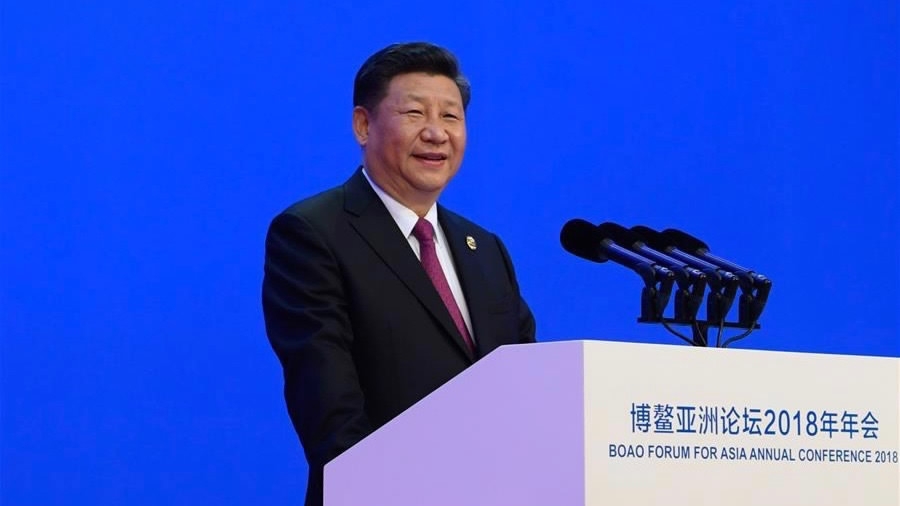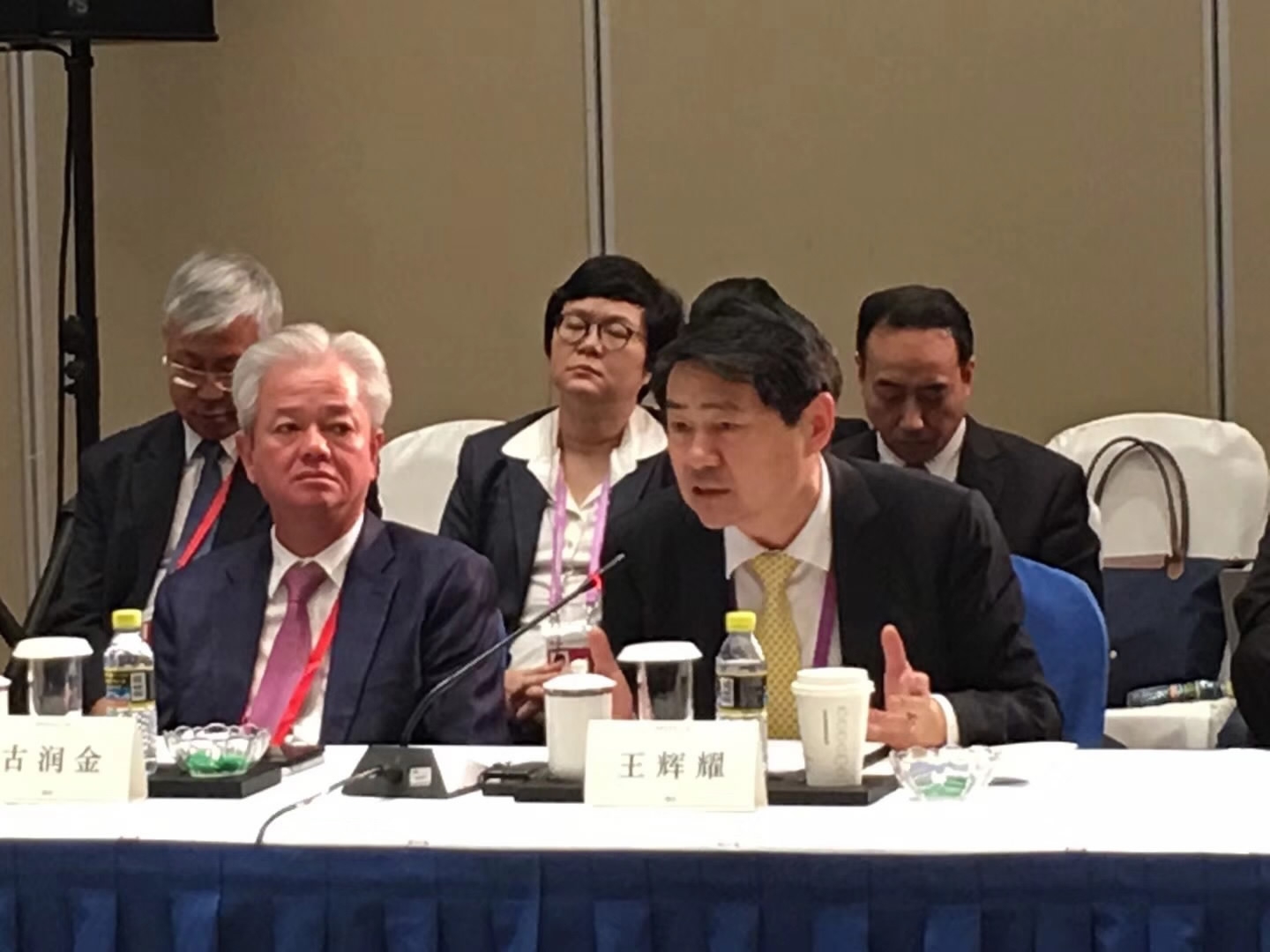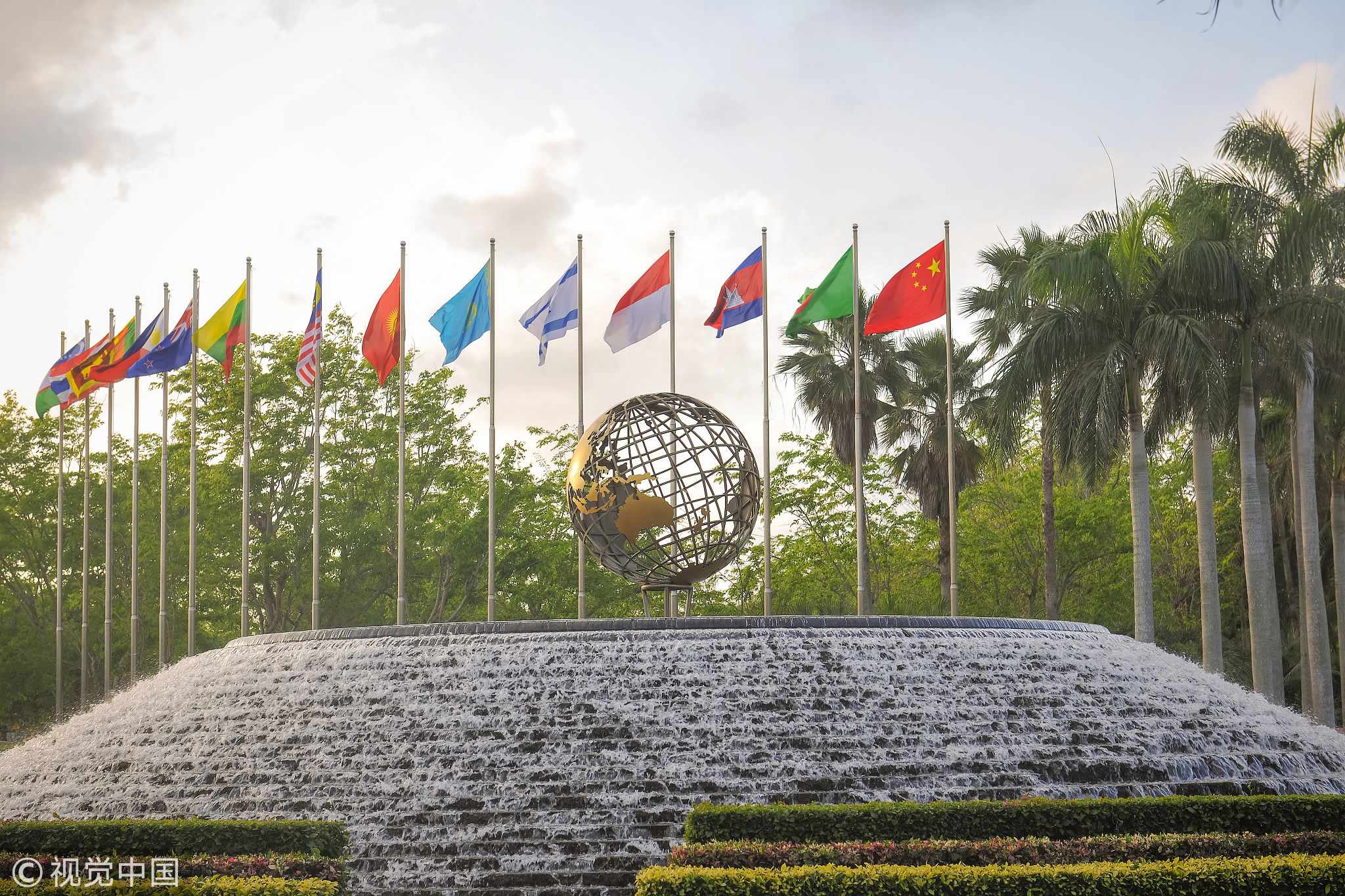
Opinions
14:12, 11-Apr-2018
Expert: BRI needs global governance mechanism
By Wang Xiaonan

At the opening ceremony of the Boao Forum for Asia annual conference, Chinese President Xi Jinping in his keynote speech vowed to "make the Belt and Road Initiative (BRI) the broadest platform for international cooperation." Since Xi envisioned this initiative in 2013, the BRI has gained momentous development yet is still confronted with brewing risks, which, if left unaddressed, will hinder its rosy development.
CGTN Digital reporter Wang Xiaonan talked with Wang Huiyao (Wang), founder and president of the Center for China and Globalization (CCG), about the challenges facing the BRI, and what China can do to make the initiative a sustained cooperation framework. Wang gave a speech on the topic at the Boao Forum for Asia annual conference in Hainan.
CGTN: The BRI has entered its fifth year. Over the past years, its unexpected progress has benefited a raft of developed and developing countries, but challenges remain, which may hamper its sustainable development and risk squandering previous efforts. What are the perennial risks and challenges?
Wang: The primary risk is in the geopolitical conception. The BRI projects go through the most geopolitically complicated regions in the world. Plus, a number of countries involved have their unique political and economic environments and some of them have been mired in political turmoil or bitter wars.
Then there are cultural and religious differences. A majority of the nations along the Belt and Road boast diversified civilizations and lack effective means of communication. If handled improperly, nationalist sentiments may rise from these divergences.

Wang Huiyao speaks during a panel discussion of the Boao Forum for Asia annul conference in Qionghai, south China’s Hainan Province, April 9, 2018. /CCG Photo
Wang Huiyao speaks during a panel discussion of the Boao Forum for Asia annul conference in Qionghai, south China’s Hainan Province, April 9, 2018. /CCG Photo
CGTN: Certain countries are biased against the initiative, claiming that it's all about China's ambition to further its influence. In Western countries, there are also concerns that its projects lack transparency and aggravate the debt problems of certain nations. Xi articulated in his speech that "China has no geopolitical calculations, seeks no exclusionary blocs and imposes no business deals on others." What more could we do to prove that the BRI is based on reciprocity?
Wang: Actually, what we need most now is a global governance organization for the BRI. So far, a large number of projects have been initiated by China. However, it lacks a common mechanism for all participants to engage in mutual consultation and joint construction to share benefits.
Foreign entrepreneurs come to us to learn more about the BRI because they don’t know where to obtain information and launch cooperation with their Chinese counterparts.
The organization could be a little loose-knit than the Secretariat of the Boao Forum for Asia, the Asian Infrastructure Investment Bank, or the council for the Organisation for Economic Co-operation and Development, but is expected to endow all participants with a sense of belonging. Its standing Secretariat should coordinate the development of the initiative as well as the relations among participants. A BRI charter could also be created to establish a partnership on an equal footing and mutual understanding, construct a just, fair security architecture, and promote exchanges among different civilizations.
In addition, I think an international law commission and arbitration center for the BRI are in urgent need as well, in a bid to forge a new order of global governance surrounding this grand project. If most countries have to come to Beijing to seek a just verdict, then they will view China with colored spectacles and disputes will consequently ensue.
With these mechanisms in place, the countries involved will be more proactive in co-building the massive infrastructure project with greater discourse of power.

April 10, 2018: Boao Forum for Asia Convention Center in Boao Town, Qionghai, south China's Hainan Province. /VCG Photo
April 10, 2018: Boao Forum for Asia Convention Center in Boao Town, Qionghai, south China's Hainan Province. /VCG Photo
CGTN: The trade row between the world’s two largest economies has rattled the world over recent weeks. It’s like we’re now living in a world of lopsided globalization, as the US and some major European economies are tilting toward trade protectionism and even populism. Facing a Western world tapering off on multilateralism, what more could we do to “make the BRI the broadest platform for international cooperation in keeping with the trend of economic globalization and to the greater benefit of all our peoples”?
Wang: Multinationals play a pillar role in this case for they can influence government decisions. In the past years, plenty of the BRI projects have been decided by Chinese enterprises alone. Lacking knowledge about local laws and conventions, they could barely make the correct calculations in budgeting, designs, time constraints, among many factors.
Transnational corporations can help set up a bridge between Chinese enterprises and local firms, banks, NGOs – to name a few – to facilitate feasibility studies. Financial centers like London, New York, Frankfurt, Tokyo and Singapore are home to not only established multinationals but also prestigious banks, fund management and security companies waiting to invest huge capital into new, reliable projects.
If we can attract their investments in the BRI, I believe local governments will think twice before seeking to hinder its mutually beneficial projects.

SITEMAP
Copyright © 2018 CGTN. Beijing ICP prepared NO.16065310-3
Copyright © 2018 CGTN. Beijing ICP prepared NO.16065310-3